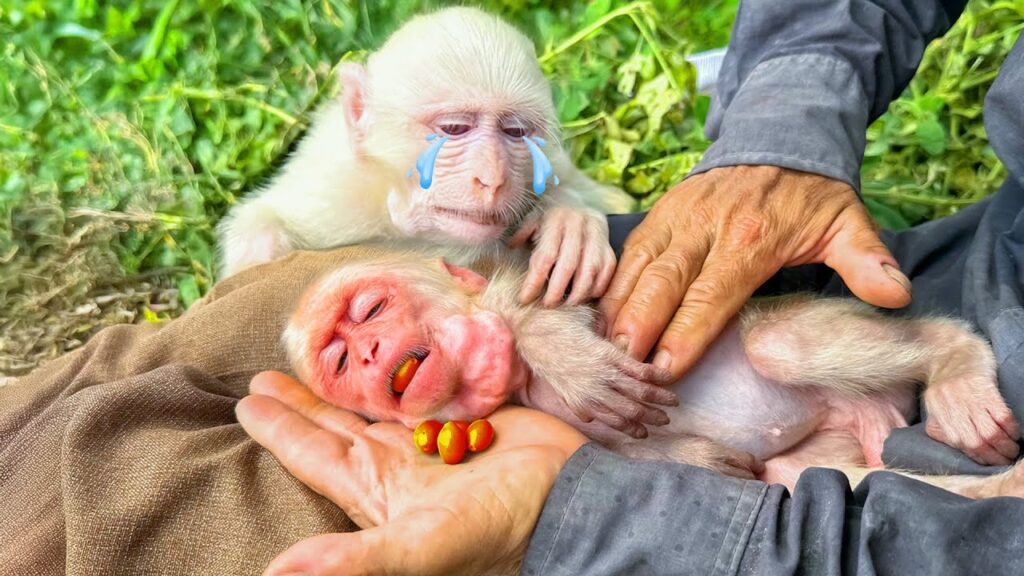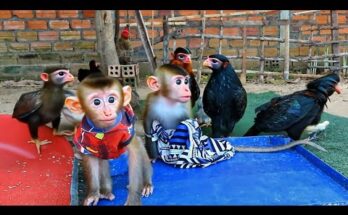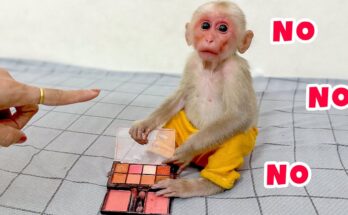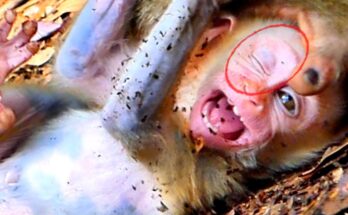
I never imagined a moment could stop my heart the way this one did. What I saw still haunts me. I was walking through the forest edge when I stumbled upon a horrifying scene—one I’ll never forget.
There, huddled under a withered tree, was a tiny baby monkey. Her name, I later learned, was NaNa. She couldn’t have been more than a few months old. Her body was fragile, her limbs trembling, and her big, innocent eyes filled with fear and confusion. She wasn’t just scared—she was suffering.
NaNa’s tiny hands were clinging to the dirt, her fur matted and dirty. Her belly was sunken, as if she hadn’t eaten properly in days. But what broke me the most was the raw wound on her back—a deep cut, untreated and infected. Who could do this to a helpless baby? Where was her mother? What kind of cruelty had she endured before I found her?
I stood frozen for a moment, my breath caught between sorrow and disbelief. Around her, a few older monkeys hovered nearby, almost like silent guardians, unsure how to help. One gently reached toward her, but NaNa didn’t respond. She was too weak. Too hurt.
I wanted to believe it was a tragic accident. Maybe she fell from a tree. Maybe she got separated from her family. But the injury looked deliberate. Something about it felt… wrong. As if someone had harmed her on purpose. The thought made my blood run cold.
This is not just a story about a baby monkey. It’s a reflection of a deeper problem—a reminder of how fragile and vulnerable wildlife truly is, especially in places where humans and nature collide. Too often, animals like NaNa become victims of neglect, abuse, or thoughtless interference.
NaNa is more than just a “poor baby monkey.” She’s a symbol of every voiceless creature that suffers in silence, hidden from the eyes of the world. She didn’t deserve this pain. No animal does.
I couldn’t leave her there. Carefully, I approached, trying not to startle her. Her eyes flickered, a sign of trust—or maybe just desperation. I wrapped her gently in a piece of cloth and carried her to a local rescue center. The veterinarians there said she had a chance, but it would be a long, difficult recovery.
I stayed by her side for hours, watching her sleep, praying she’d survive. Her tiny chest rose and fell so delicately, as if the world itself was holding its breath.
I share this story not just to express my shock, but to awaken compassion. To ask you—what would you have done if you saw NaNa? How many other NaNas are out there right now, unseen and unheard?
We can do better. We must do better.


